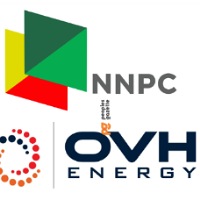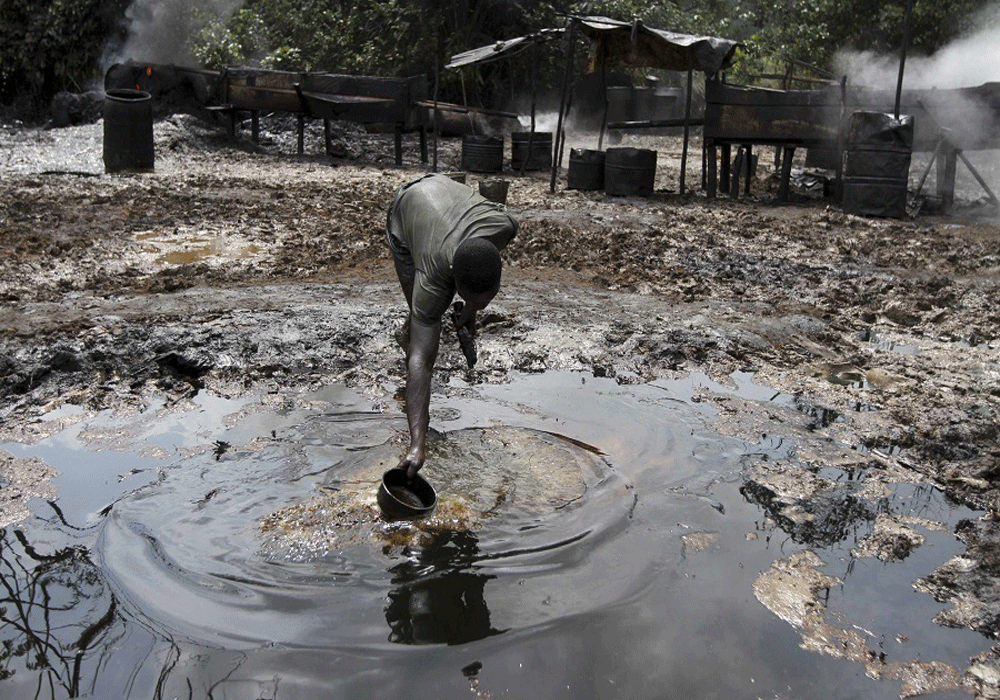Energy
Revelations On The “Unseen Hands” Fighting Dangote Refinery: A Deep Dive
In 2022, the Nigerian National Petroleum Corporation (NNPC) announced the acquisition of OVH Energy, a subsidiary of Oando, which operates Oando filling stations.
This move was intended to integrate OVH Energy with NNPC Limited, the entity responsible for downstream operations, including refining, marketing, and distribution of petroleum products.
However, new revelations suggest a different narrative, one that has significant implications for the Nigerian oil industry.
In reality, it appears OVH Energy, rather than being acquired, has taken control of NNPC Retail.
Following the merger, Huub Stokman, formerly the CEO of OVH, assumed the role of Managing Director of NNPC Retail, replacing the Nigerian MD, Margret Okadigbo.
This change has raised concerns among NNPC insiders, with one key official describing the transaction as “the worst possible acquisition deal ever.”
Barely a month after President Bola Ahmed Tinubu took office in June 2023, OVH Energy began to assert its dominance over NNPC Limited’s operations. An investigation by Premium Times, which included interviews with key NNPC personnel, confirmed that OVH Energy now effectively controls NNPC Retail.
READ MORE: Protests Will Yield No Positive Outcomes, Sudanese Cleric Tells Nigerians
Despite the controversy, NNPC Managing Director Mele Kyari defended the merger, citing an all-time high profit of N18.4 billion attributed to the deal with OVH Energy.
However, this financial success story is contradicted by NNPC’s subsequent actions.
In September 2023, it was revealed that the NNPC had borrowed $1.036 billion to acquire a mere 7.2% stake in the Dangote Refinery, far short of the 20% initially agreed upon. Kyari later admitted that NNPC lacked the funds to purchase the remaining 12.8% of the shares, despite the previous claims of high profits.
Moreover, NNPC is now seeking to borrow an additional $2 billion for undisclosed purposes, raising further suspicions of financial mismanagement. This situation has led to a fierce conflict between Dangote and NNPC over the Dangote Refinery.
Amidst this turmoil, the role of Oando and its CEO, Wale Tinubu, has come under scrutiny.
Wale Tinubu, who is President Bola Ahmed Tinubu’s nephew and long-time business associate, has a history of controversial business dealings. Their partnership dates back to 2002, when Bola Tinubu, as Governor of Lagos, established Alpha-Beta, a company that has been accused of being a conduit for siphoning funds.
These developments have led to widespread allegations of corruption and cronyism, with many pointing fingers at the highest levels of government. As the battle over the Dangote Refinery intensifies, it is clear that the power dynamics within Nigeria’s oil industry are shifting, driven by unseen hands and questionable deals.
The implications of these revelations are far-reaching, potentially affecting Nigeria’s economic stability and public trust in its institutions. As more details emerge, the true extent of the “unseen hands” fighting for control of the Dangote Refinery will undoubtedly become clearer, raising critical questions about governance and accountability in Nigeria.
Energy
SNEPCo, Former MD Aiboni Win Energy Times’ Awards

The Shell Nigeria Exploration and Production Company (SNEPCo) has been named Major Oil Company of the Year for last year by a Nigerian publication, Energy Times.
Biztellers reports that this is in recognition of the company’s contributions to deep-water oil and gas development and the industry generally.
Energy Times also awarded the title of Amazon of Nigeria’s Oil Sector for 2024 to Elohor Aiboni, a former Managing Director of SNEPCo now on international assignment in Brunei.
The awards were presented to SNEPCo’s Senior Operations Manager, Bolanle Odunayo-Ojo, who represented the Managing Director, Ronald Adams at a ceremony attended by key stakeholders in the oil and gas sector.
ALSO READ: BREAKING: Again, Dangote Cuts Petrol Price To N835 per Litre
“We are honored to receive the recognitions for the company and our former Managing Director as they underscore our dedication to excellence in the upstream sector,” Bolanle stated. “The modest achievements are result from teamwork and support by our partners, particularly the Nigerian National Petroleum Company Limited and regulatory agencies. The awards encourage us to continue to work together to power progress and innovation in Nigeria’s energy landscape.”
The SNEPCo has been a pioneer in Nigeria’s deep-water oil and gas production since it began production from Bonga in 2005, Nigeria’s first deep-water well. Gas from Bonga is also piped to Nigeria Liquefied Natural Gas Company Limited at Bonny Island. SNEPCo’s operations have led to significant discoveries, including Bonga Southwest in 2001 and Bonga Northwest, which began production on August 5, 2014.
In its award, the Board of Directors of Energy Times pointed to the continuing success of Bonga, notably production of the 1 billionth barrel of oil in February 2023 and the recent Final Investment Decision on the $5 billion Bonga North project.
The award on Aiboni’s highlights a career that has seen her serve in various business and leadership roles within and outside Nigeria. She was appointed Managing Director of SNEPCo in 2021 and led initiatives that deepened operational efficiency, local content development and social investment projects across the six geopolitical zones in the country.
Energy
Shell Commends Oloibiri Lecture Series As Platform For Change

Shell Nigeria Exploration and Production Company Ltd (SNEPCo,) one of the sponsors of the Oloibiri Lecture Series and Energy Forum (OLEF) has commended it as a platform for driving change in Nigeria’s energy sector through the discussions that centre on business performance, cost discipline and process simplification.
“This event is special to the Shell brand, not only because of the nostalgia of Oloibiri but the quality of discourse it has enabled in our sector over the years,” SNEPCO Managing Director Ronald Adams said in a goodwill speech delivered by General Manager, Wells and Geosciences Operations Joe Mordi. He said: “We are grateful to the Society of Petroleum Engineers and our host the Petroleum Technology Development Fund (PTDF) for another successful outing.”
Organised by the Society of Petroleum Engineers (SPE) Nigeria Council, the Oloibiri Lecture Series and Energy Forum began in 1991, in commemoration of the country’s first commercial oil discovery by Shell at Oloibiri, Bayelsa State, in 1956. Ronald said recent developments in the Upstream and Downstream sectors of the energy industry, including the $5-billion final investment decision by Shell in the Bonga North Deepwater project echoed the sentiments around the first oil discovery.
ALSO READ: No Safety Guarantee For Unscheduled Visitors To Benue – Gov Alia
He noted that, “These strides come with a commitment to excellence required of us – for stakeholders, colleagues, our country and indeed, future generations. The theme for this year ‘Driving energy sustainability through technology, policy and supply chain excellence’ reflects this commitment. The future is bright, and we have the opportunity to co-create it.”
Energy
NLNG Improves Nigeria’s Domestic LPG Supply Efficiency

In line with its continuous improvement culture, the Nigeria LNG Limited (NLNG) will be working closely with its stakeholders to improve operational efficiency in its domestic Liquefied Petroleum Gas (DLPG) supply in Nigeria.
According to a statement from its General Manager, External Relations and Sustainable Development, Sophia Horsfall, this was highlighted at an engagement session with stakeholders in Lagos.
It was gathered that the NLNG plans to enhance engagement and improve operational efficiency of its LPG supply through digitalisation of some of its processes which include a new platform designed to streamline regulatory processes, optimise risk management, and enhance the buyer experience. The platform will feature IT-supported relationship management, automated issue resolution, centralised real-time payments, and improved case management systems, ensuring a seamless supply process despite market shifts and external pressures.
ALSO READ: Ifon-Ilobu Crisis: Adeleke Assures Of Quick Restoration Of Peace
Manager, Commercial Contract Management, NLNG, Tolulope Longe, reiterated that the planned improvements will enable and consolidate NLNG’s resolve to delivering 100% of its LPG supply to the Nigerian market.
She said a strategic roadmap was in play to ensure the achievement of NLNG’s longstanding goals of LPG being accessible and available in the country, aligning with its vision of being a globally competitive energy company, improving lives sustainably. She also harped on the significance of these improvement initiatives and the Company’s push for LPG utilisation as a clean energy source alternative to kerosene and other fossil fuels
Longe noted that the Company remained focused on growth and sustainability of the LPG market by continuously enhancing its supply processes in collaboration with offtakers. She stressed NLNG’s commitment to collaborating with stakeholders to maintain pricing stability and long-term market viability. While acknowledging industry concerns, she noted the importance of operational efficiency in meeting market demands.
NLNG aims to strengthen stakeholder engagement and improve market efficiency in the LPG sector through enhanced customer interactions, minimised schedule disruptions, timely confirmations and deliveries, and prioritisation of customers with demonstrable capacity. As it adapts to market realities, NLNG remains committed to driving sustainability and delivering lasting value to Nigerians.


















